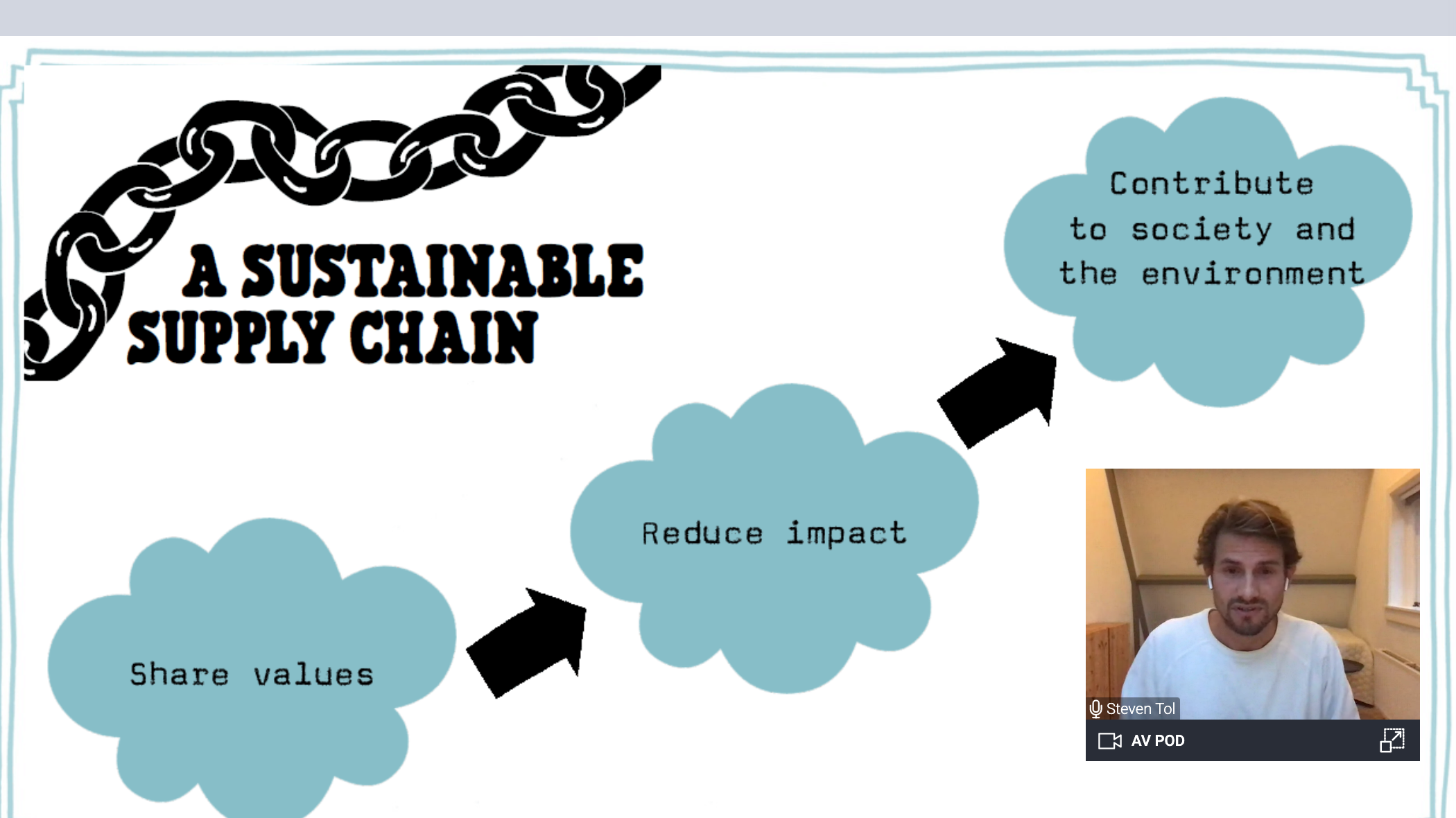A deep dive with dopper
Dopper, the anti-plastic campaigners and water bottle makers brought together three super-cool brands to talk about how companies can take responsibility for a better world and create positive change through linking consumers, industries and governments.
Tony’s Chocolonely, Oatly and Ecover are all working on their missions to make the world a better place.
Chief chocolate storyteller Ynzo van Zantan spoke of the Tony’s story. A lot was a familiar story having studied Tony’s on my MBA. I however, didn’t know there was secret map of West Africa hidden in the Tony’s bars of chocolate. Did you?
I did however know that the agreement in the non-binding Harkin-Engel protocol ran out in 2020. This agreement was between chocolate makers to essentially clean up their supply-chain. It’s clearly not happened, and despite Albert Heijn’s Delicata range now using Tony’s model of sourcing, and both showing that profits can still be made, other chocolate makers have been slow on the uptake.
I asked Ynzo why. Was it to do with corporate governance? What were the actual barriers?
I challenge Ynzo on what is taking so long for other chocolate makers to adopt the Tony’s model.
(Question read by the moderator Caitlin Clark (I wish I had such a nice fringe).
Tony’s has proved that chocolate can be made in a more sustainable way. They are now market leaders in the Netherlands. They are sharing their story and increasing consumer awareness. So why are others not doing it?
Ynzo answered my question:
“There is a lack of direct relationship with the farmers which makes it easy to hide and not have too many emotions. Once you have seen this vicious cycle of poverty, and build a long term relationship you will only want to do the right thing”
Schemes are improving but it’s not enough. The change on the ground is too slow, and too little. Organisations need to be accountable, but as consumers we need to make proper purchase decisions.
Tony’s is a pro-social and pro-environmental company, but they aren’t an NGO or a charity, they prioritise their stakeholders as this:
Team
Farmers
Customers
Retailers
Ynzo shared a quote I hadn’t heard before from Jean Paul Sartre. He said, ‘once you know, and we are aware, we are responsible for our action and our inaction’. This is how I feel about ESG issues. Now I have learned about them, I can’t unlearn that, and I need to put them into each and every business decision (and chocolate purchase) that I make.
Steven Tol, marketing manager Benelux at Oatly also shared some of their interesting data-based campaigns. Oatly has grown astronomically since a brand repositioning in 2012, and is now a strong, activist brand taking on legislators, the dairy industry and persuading our guts on the benefits of oat-based drinks. They are calling for a systemic change in reducing CO2 emissions - much of which comes from the methane produced by industrial farming and cows…
As a big fan of Oatly for many years (it lasts for ages in the fridge too), and of their fun, eye catching creative and advertising, I was really pleased to hear from them. Where Tony’s and Oatly are both activist brands, Oatly chooses to rely a lot on outdoor media and advertising, where Tony’s doesn’t. They have never advertised. Two different execution approaches.
Steven Tol from Oatly describes their sustainable supply chain
Ecover is a brand that I’ve known my whole life. It’s been the cleaning product of choice in my family home. However, what was brilliant to hear from their head of sustainability and innovation is that they continue to innovate, and continue to drive sustainable actions from their suppliers, customers and retailers.
Tom Domen shared all the work they had been doing on their Ecover refill stations that are in stores in select countries now. He explained the iterative process of how the process has been refined, and how they continue to try and find new ways to reduce their impact on the environment, yet provide a quality product for consumers.
Thanks to Dopper for this inspiring hour and a half, and bringing together these great brands, but more importantly reminding me why I want to support businesses with their pro-social and pro-environmental messages, because now I know, I can’t un-know.




